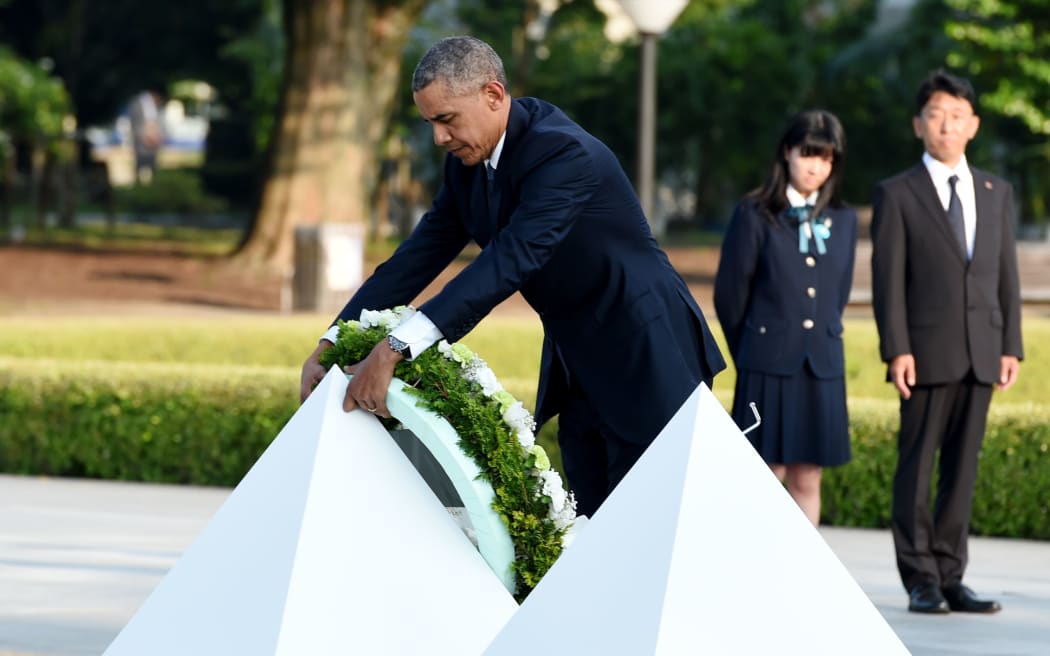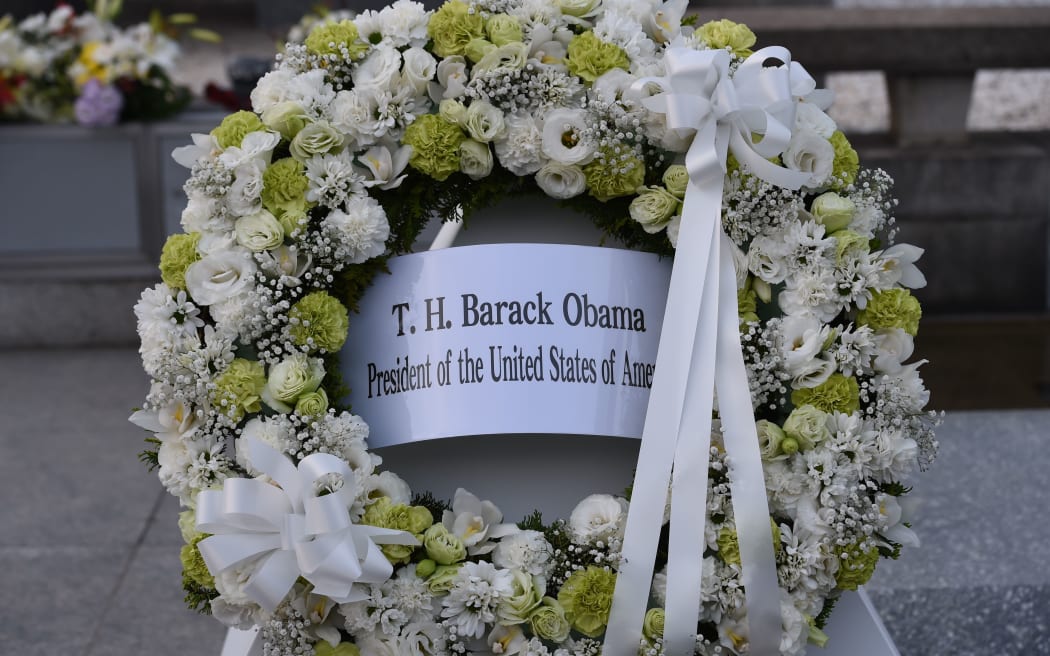Barack Obama has become the first serving US president to visit Hiroshima since the World War II nuclear attack.

US President Barack Obama places a wreath at the cenotaph in the Peace Memorial park, Hiroshima with Japanese Prime Minister Shinzo Abe. Photo: AFP
Mr Obama said the memory of 6 August 1945 must never fade, but did not apologise for the US attack - the world's first and only nuclear bombing.
He spoke to survivors and in an address called on nations to pursue a world without nuclear weapons.
He has also said he would not apologise for the bombing.
At least 140,000 people died in Hiroshima and another 74,000 two days later in a second bombing in Nagasaki.

The wreath placed by US President Barack Obama in tribute to those killed by the nuclear bomb dropped on Hiroshima. Photo: AFP
Mr Obama visited the Hiroshima Peace Memorial Museum before walking to the Peace Memorial Park, accompanied by Prime Minister Shinzo Abe.
Both men stood in front of the eternal flame. Mr Obama laid a wreath first, followed by Mr Abe.
"Death fell from the sky and the world was changed," Mr Obama said in his address, noting that the bombing had shown that "mankind possessed the means to destroy itself".
Mr Obama said the memory of Hiroshima must never fade.
"It allows us to fight complacencies, fuels our moral imagination and allows us to change."
Of nuclear weapons, he said: "We must have the courage to escape the logic of fear and pursue a world without them."
Mr Obama had earlier flown into the nearby Iwakuni Marine Corp base nearby, after leaving the G7 summit.
"This is an opportunity to honour the memory of all who were lost during World War II," he told service personnel.
Mr Obama praised the US-Japan alliance as "one of the strongest in the world", with his visit "a testament to how even the most painful divides can be bridged - how our two nations, former adversaries, cannot just become partners, but become the best of friends and the strongest of allies".
Many in the US believed the use of the nuclear bomb, though devastating, was right, because it forced Japan to surrender, bringing an end to World War II.
The daughter of one survivor, who was visiting the memorial on Friday, said the suffering had "carried on over the generations".
"That is what I want President Obama to know," Han Jeong-soon, 58, told the Associated Press news agency.
"I want him to understand our sufferings."
Seiki Sato, whose father was orphaned by the bomb, told the New York Times: "We Japanese did terrible, terrible things all over Asia. That is true. And we Japanese should say we are sorry because we are so ashamed, and we have not apologised sincerely to all these Asian countries. But the dropping of the atomic bomb was completely evil."

